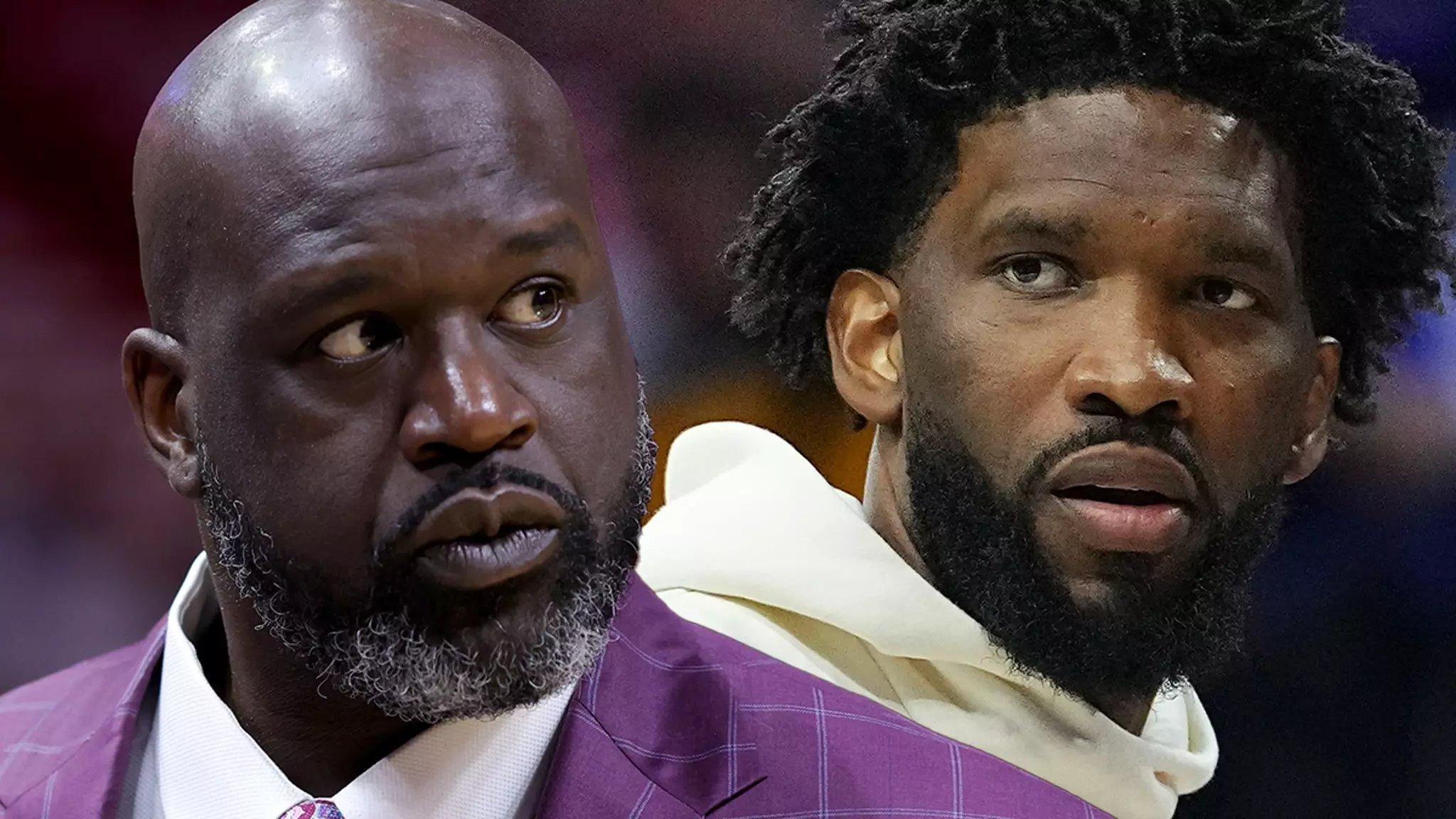In the competitive realm of the NBA, the mentality of players is often just as significant as their physical abilities. Recently, a controversy erupted when Hall of Famer Shaquille O’Neal publicly criticized Philadelphia 76ers star Joel Embiid, branding him as “soft” due to his reluctance to participate in back-to-back games. This confrontation not only highlights the contrasting philosophies of two basketball giants but also invites a deeper examination of the current landscape of player management in the league.
Joel Embiid, the reigning NBA MVP, made headlines for his absence during the 76ers’ season opener against the Milwaukee Bucks and his subsequent unavailability for two additional games. The official narrative from the 76ers cited “left knee injury management,” raising questions about the implications of player rest in modern basketball. Embiid had previously stated that he likely would not participate in back-to-back games for the duration of his career. This statement ignited O’Neal’s ire, who firmly believes that a player of Embiid’s caliber should embody a more aggressive and participatory mindset when it comes to competing on the court.
O’Neal’s career epitomizes the relentless dedication that has traditionally characterized elite athletes in the league. As a four-time NBA champion and a 15-time All-Star, Shaq consistently pushed himself to compete at the highest level, setting the bar for future generations. His assertion that Embiid should embrace an ethos of relentless competition reflects a nostalgic view of what it means to be a franchise player. Shaq pointed out that during his prime, he fought for dominance every game, challenging the notion that players today can afford to selectively participate based on physical limitations.
The topic of player rest has gained significant attention, especially in light of investigations into whether Embiid’s absences adhere to the NBA’s player participation policy. For many, this trend raises pertinent discussions around the delicate balance between preserving player health and maintaining competitive integrity. Such policies aim to prevent teams from resting healthy players, a practice that some argue undermines the integrity of the league and its fan engagement. The tension between showcasing star players and ensuring their long-term health continues to complicate this narrative.
The exchange between Shaquille O’Neal and Joel Embiid effectively illuminates a broader discussion regarding the evolving culture of the NBA and the expectations of its superstars. While O’Neal’s views may resonate with those who favored a more traditional approach to competition, it is essential to recognize that modern player management is adapting to the demands of an extremely rigorous schedule. The ongoing debate over player rest and availability will likely continue to unfold as the league navigates its future while balancing long-term athlete health with the immediate desire for competitive excellence.

